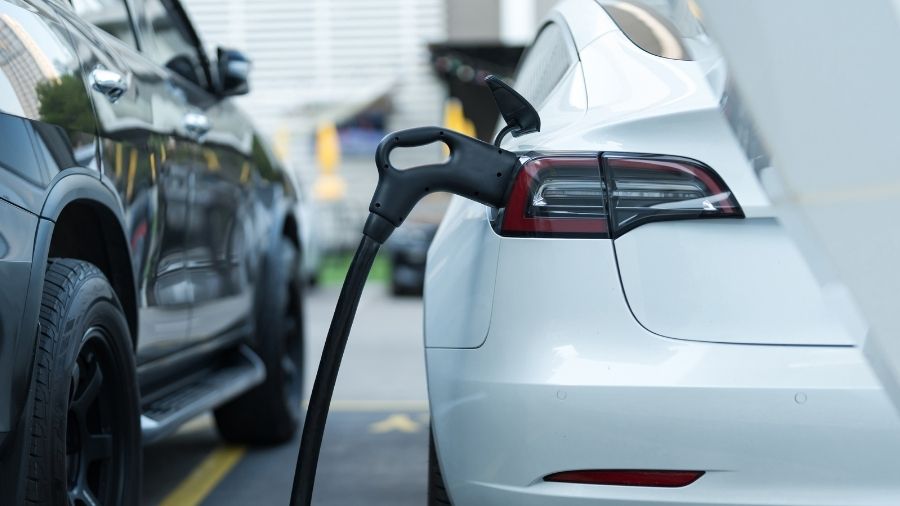The Electrifying Rise of Electric Vehicles in the Automotive Industry

Electric vehicles (EVs) have become a focal point in the automotive industry, promising eco-friendliness, cost-effectiveness, and a reduction in carbon emissions. The surge of electric vehicles, encompassing technological advancements and simplified maintenance, is steering a profound transformation in our transportation landscape.
The EV surge has struck a chord with consumers who are increasingly conscious of the environmental impact of traditional combustion engines. This surge is more than a fad; it's a pivotal shift in the automotive world. Recent data reveals that the EV market is on track to reach an estimated $802 billion by 2027, driven by the global commitment to environmental responsibility and sustainable transportation.
Commercial vehicles, which serve as the backbone of global logistics and transportation, are embracing the electric wave. The shift to electric power translates not only to cost savings
but also substantial reductions in emissions. Leading players in the commercial vehicle domain are electrifying their fleets to meet the growing demand for environmentally responsible transportation solutions.Electric vehicles are at the forefront of innovative technology. The integration of artificial intelligence and natural language processing has significantly improved vehicle safety, navigation, and communication systems. These advancements not only enhance the driving experience but also reduce the need for extensive vehicle maintenance, making ownership more affordable.
When it comes to maintenance, electric vehicles stand out. Their simplicity, with fewer moving parts compared to traditional vehicles, significantly lowers the risk of mechanical failures. This translates to cost savings and peace of mind for vehicle owners. Electric vehicles are also designed to withstand harsh conditions, ensuring their durability and longevity.
The automotive industry's pivot toward electric vehicles is a clear trend. Electric cars are no longer confined to the fringes; they represent the future of transportation. Governments worldwide are offering incentives and imposing strict emission reduction targets, setting the stage for rapid market growth.
Let's examine some critical data:
Market Growth: The electric vehicle market is expanding at a compound annual growth rate (CAGR) of around 22%, with the market size projected to hit $802 billion by 2027.
Global Impact: The adoption of electric vehicles could curtail global carbon dioxide emissions by nearly 1 billion tons annually by 2030.
Fleet Electrification: Major players in the commercial vehicle sector, such as UPS and Amazon, are gearing up to electrify substantial portions of their fleets in the near future.
Technology Integration: Thanks to NLP and AI technology integration, electric vehicles have seen a 40% drop in accidents due to enhanced safety features.
Charging Infrastructure: Governments and private entities are investing heavily in charging infrastructure, aiming to have over 3.5 million charging points worldwide by 2030.
As electric vehicles become more affordable and accessible, they are poised to dominate the automotive landscape. Challenges like charging infrastructure and range anxiety persist, but the industry is actively working on solutions. The adoption of electric commercial vehicles marks a substantial step toward a more sustainable and eco-friendly future.
The electric vehicle revolution isn't merely a trend; it's an imperative. As the automotive sector embraces this shift, we can anticipate cleaner air, diminished greenhouse gas emissions, and a more technologically advanced and efficient transportation landscape. Electric vehicles, with their low maintenance requirements and advanced technology, are reshaping how we commute, paving the way to a greener, more sustainable future for all.
Staying informed about the latest industry trends and market developments is essential in this ever-evolving landscape. The transition to electric vehicles is no longer a choice but a global movement toward a cleaner and more sustainable future.
Previous Story
- Revolutionizing Healthcare: Affordable Medical Gear Reshapes the Industry...
- Activated Carbon Filters - A Game Changer in...
- Surge in Power Generators Market - Analyzing Electric,...
- Analyzing the Growing Commercial Dispenser Industry and Key...
- Chinese Textile Industry Develops as Exports Soar, Reshaping...
- Transforming the Auto Industry: Automotive Tools at the...
- Indian Textile Industry Thrives Amidst Global Demand
- Innovation and Tradition in the Indian Textile Industry